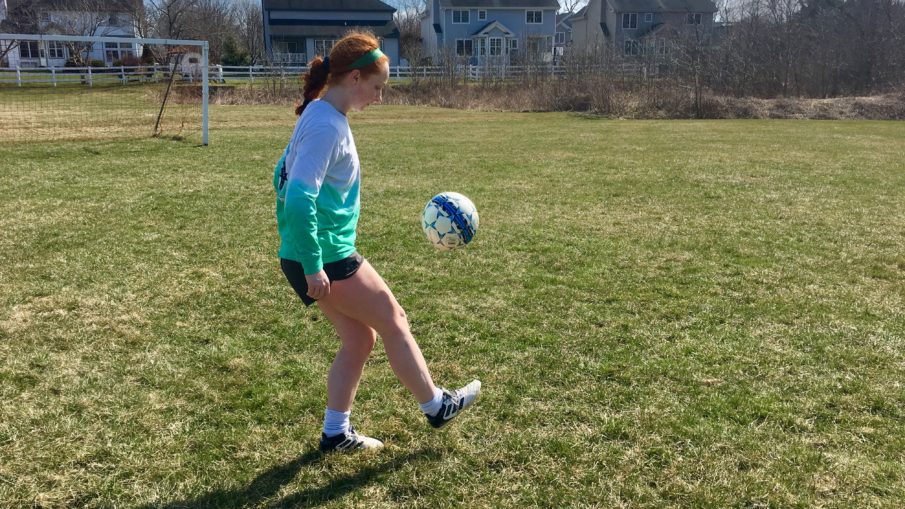Some people see sports as an extracurricular activity, but for Miranda Timberlake, it’s a way of life. Timberlake has been playing soccer since age four and isn’t planning on stopping anytime soon. She hopes to play professional soccer and she isn’t too far from reaching her dreams.
Mallory Maher: When did you realize soccer was your main sport?
Miranda Timberlake: I realized soccer was my main sport in sixth-grade. I also was playing basketball at the time and I ended up quitting it so I could give my full time and energy to soccer.
Maher: When did you start to play soccer competitively?
Timberlake: I started playing competitively in third-grade. I remember telling my third-grade teacher how excited I was to make the local club team and all of the high-level tournaments I was going to get to go to.
Maher: What are some of your soccer highlights and accomplishments?
Timberlake: Some of my recent accomplishments include National Soccer Coaches Association of America All-South region team. I was the only person to receive this award in Frederick County my senior year. I also received NSCAA Academic All-American team and NCAA Empire 8 Conference Rookie of the Year. My favorite highlight was when I scored the winning penalty kick that sent my school (Linganore High School) to the 3A State Finals junior year. Another highlight was training with some teams in Europe. I have the opportunity to go back to Europe this summer.
Maher: What are you planning to do in Europe this summer?
Timberlake: This summer I will be going to different universities in the United Kingdom to try out for their soccer teams. One of my main reasons for traveling is to try out for the University of Stirling, whose team plays in the Scottish Women’s Premier League in the spring.
Maher: What does European collegiate soccer offer that U.S. collegiate soccer doesn’t?
Timberlake: In European collegiate soccer, you never have an offseason and play all year long. They also offer futsal leagues. In Europe, soccer is a way of life, not just a game which is how it is in my own life so it will be fitting.
Maher: How have you been training for your tryouts recently?
Timberlake: I have been getting ready for my tryouts by eating a healthy diet, staying hydrated and getting into a good sleep schedule. For training, I train six days a week for at least two to three hours a day. I currently practice with two teams, a boys team and a girls team. I practice with the boys’ team to help me to improve my speed and physicality and I practice with the girls’ team to improve my technical and tactical skills. Besides practice, I work on my individual skills and conditioning.
Maher: What are your future plans?
Timberlake: My future plans are to get a degree in computer science, but I hope to play soccer as long as I can and will be pursuing the rest of my coaching licenses while in college. I hope to coach as a hobby, and if possible, as a career.
Maher: How has soccer impacted your life?
Timberlake: Soccer has had a very positive influence on my life. It has taught me valuable lessons, the most important being hard work pays off. Throughout my soccer career, I have seen many players, who were once some of the best, fade into the background because they thought they could just come to practice every day and instantly get better. I have learned that you have to truly dedicate yourself to whatever you do in order to be successful. I saw that hard work pays off when I went to visit the University of Stirling going into my senior year. I found out in June 2016 that I got a tryout with the Scottish women’s premier league in August 2016, so I immediately increased my training to two times a day. Even though I decided to postpone playing there for a year, my hard work paid off and I made the team.

